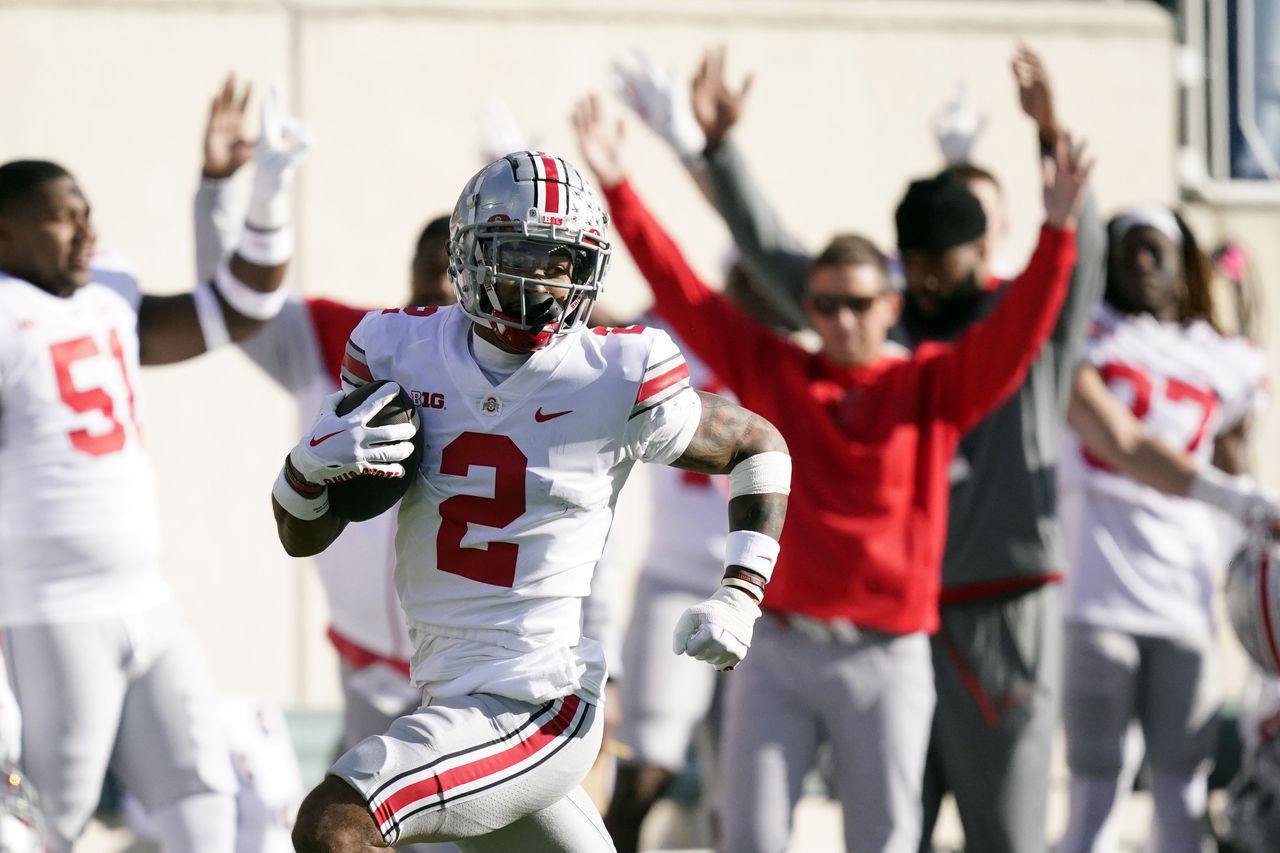
Ohio State will begin its 2023 college football season with a Big Ten game against Indiana on Saturday afternoon.
The Buckeyes have won 27 straight games over the Hoosiers as Indiana looks to end the skid that began in 1991.
Fans looking to watch this college football game can do so for free on fuboTV, which offers a free trial (as well as RedZone, for you NFL fans) or on DirecTV Stream, which also offers a free trial. SlingTV has promotional offers available, as well.
Who: Ohio State Buckeyes vs. Indiana Hoosiers
When: Sept. 2 at 3:30 p.m. EST at Memorial Stadium
Where: Memorial Stadium in Bloomington, Indiana
Stream: fuboTV (free trial); or Sling; or DirecTV Stream
Tickets: StubHub and *VividSeats
*New customers who purchase tickets through VividSeats can get $20 off a $200+ ticket order by using the promo code MassLive20 at checkout.*
Betting: NFL fans can wager online on Massachusetts sports betting with enticing promo codes from top online sportsbooks. Use the FanDuel Massachusetts promo code and the DraftKings Massachusetts promo code for massive new user bonuses.
RELATED CONTENT:
Since the Big Ten settled on a geographic split in 2014 for its expansion to 14 schools, the West Division has been the place to be.
Come for the competitive balance. Stay for the affordable ticket to the conference title game.
The East Division, of course, has produced all nine Big Ten champions in the current format and eight participants in the College Football Playoff. But the West has been a bastion of inclusivity with four different division winners the last four years.
That inviting path to Indianapolis — for Illinois, Iowa, Minnesota, Nebraska, Northwestern, Purdue and Wisconsin — is about to be repaved.
When Oregon, UCLA, USC and Washington are admitted in 2024, the divisional format will disappear. Landing a spot in the league title game will then require a top-two finish in an 18-team conference with mammoths like Michigan, Ohio State and Penn State also in the scheduling mix.
That creates some urgency for a bunch of teams unlikely to be CFP contenders but plenty driven to appear on the national stage.
“The gifts of something like that, earning a championship, it’s determined by what you do each and every week. That’s going to be the same this year, next year, 10 years down the road, whether there are divisions or not,” Iowa left tackle Mason Richman said, reflecting on the drastically shifting landscape of college football. “I think you look at it, and then you look away. For me, for a lot of guys on the team, it doesn’t really matter.”
Wisconsin tight end Hayden Rucci was informed about the impending change when asked earlier this month by a reporter about the opportunity.
“I haven’t really been paying attention. I’ve just been kind of focusing on this season,” Rucci said, “but if there is no more more Big Ten West then I think we’ve got to finish this thing out with a bang.”
New Nebraska coach Matt Rhule will try to make this year count. He took Temple to two American Athletic Conference championship games and Baylor to a Big 12 title game before leaving for the NFL.
“I thought it was kind of cool playing divisions, but the league’s gotten so big, it’d be really hard to do that,” Rhule said. “As just kind of a purist, I like the way things always were. But I do appreciate the fact that at least now the two best teams are playing in each conference.”
The conference title games so familiar in college football are not that old: The SEC broke ground for major college football with the division format in 1992, when the arrival of Arkansas and South Carolina gave it 12 teams and the right to play a conference championship game after the conclusion of the regular season. The Big 12 followed with its launch in 1996 as a north-south league. The ACC split into Atlantic and Coastal divisions in 2005.
When Nebraska and Colorado bolted the Big 12 in 2011, that conference went back to one 10-team collective while the new respective homes of the Huskers (Big Ten) and Buffaloes (Pac-12) each reached the 12-team threshold for staging a title game.
After the NCAA eliminated that rule, the Big 12 restored its championship game in 2017 based simply on the top two records from league play. Last year, the other title-game requirement for undivided conferences — playing a round-robin schedule — was dropped. The Pac-12 immediately combined its North and South divisions into one entity. The ACC has done the same for this year, and the SEC will execute its east-west merger in 2024 when Oklahoma and Texas join to give it 16 teams.
The Big Ten initially put Michigan and Ohio State in opposite groups — the ill-fated geography-free Legends and Leaders divisions that lasted three years — and never had that hallowed matchup materialize in the title game. Wisconsin won the first conference championship game out of the Leaders Division when Ohio State was down and again in 2012 when both Ohio State and Penn State were on probation.
The Badgers have won the West four times. Iowa and Northwestern are the only other repeat winners. Purdue went to the title game last year with three losses. Nebraska won the Legends Division in 2012 but has never captured the West. Neither has Illinois or Minnesota, with both finishing in a three-way tie for second place last season when the competitive balance was at its peak.
The Gophers would have won the West by beating Wisconsin in the final week in 2014, 2016 and 2019. Same goes for their November game at Iowa in 2021 and their October game against Purdue in 2022. Soon they might find themselves in one of those key games in … California.
“Growing up, you always thought of the Big Ten as what the Big Ten used to be, but it’s exciting to think about, ‘Hey, we might be able to get to play new teams,’” Gophers defensive end Danny Striggow said.
___
AP Sports Writers Steve Megargee in Madison, Wisconsin, and Eric Olson in Lincoln, Nebraska, and AP freelance writer John Bohnenkamp in Iowa City, Iowa, contributed.






